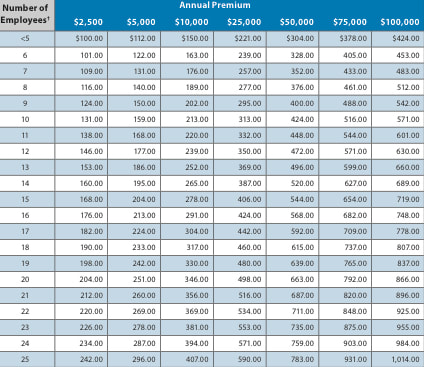Listen to our Radio Ad about Shop Insurance
Is your business licensed & bonded?
Get a bond for your business for as low as $100 a year with one of our “A Rated” insurance companies. Complete the form below or call Shorr Agency @ 888-737-6200.
Coverage highlights:
• Protect your business from losses incurred by dishonest acts of your employees
• Covers all company employees, part-time and full-time
• No deductible
• Contains a conviction clause to protect you and your employees against unjustified allegations or charges of
dishonesty – your employee must be convicted before coverage will apply. See bond application for details.
Coverage highlights:
• Protect your business from losses incurred by dishonest acts of your employees
• Covers all company employees, part-time and full-time
• No deductible
• Contains a conviction clause to protect you and your employees against unjustified allegations or charges of
dishonesty – your employee must be convicted before coverage will apply. See bond application for details.
How much is a business service bond?
Don’t let this happen to you
• You own a cleaning service. An employee, while cleaning a customer’s office, spots some valuables at the bottom
of a closet. After finishing work, the employee puts the valuables in her pocket and leaves.
• You’re a subcontractor. On the customer’s job site, your employee notices some copper wire for the taking. He
secretly puts it in his truck when no one is looking. Even though you might never imagine one of your employees
stealing while on the job, employee theft can and does occur. As a business services owner, you’re more
vulnerable to employee dishonesty than you might think.
• You own a cleaning service. An employee, while cleaning a customer’s office, spots some valuables at the bottom
of a closet. After finishing work, the employee puts the valuables in her pocket and leaves.
• You’re a subcontractor. On the customer’s job site, your employee notices some copper wire for the taking. He
secretly puts it in his truck when no one is looking. Even though you might never imagine one of your employees
stealing while on the job, employee theft can and does occur. As a business services owner, you’re more
vulnerable to employee dishonesty than you might think.






